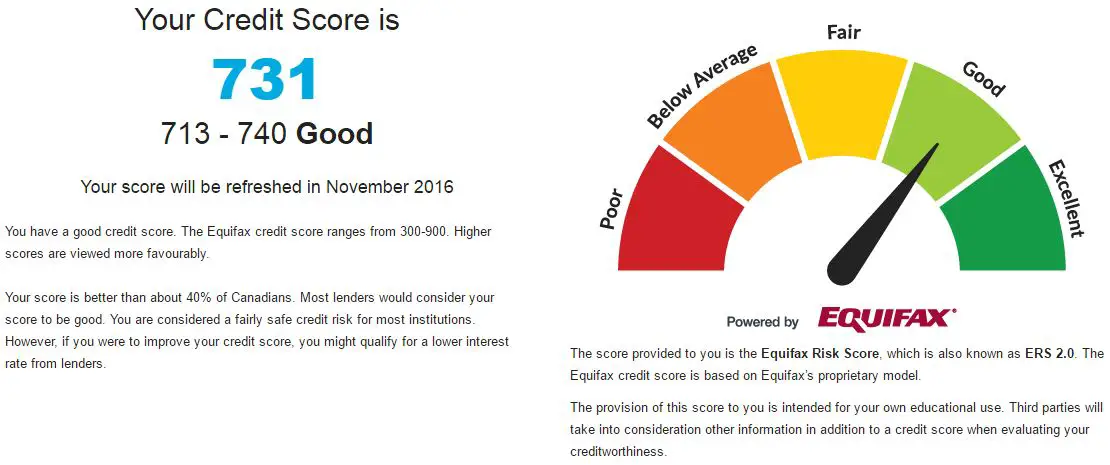Dividend Growth Investing & Retirement is supported by its readers through donations and affiliate links. If you purchase through a link on my site, I may earn a commission. Thanks! Learn more.
I have never been a big supporter of the idea that buying a house is a good investment. What people often forget is the hidden costs that they pay in addition to the purchase price. When you start factoring the house insurance, property tax, maintenance costs and other ongoing ownership costs the returns aren’t that great. There are also significant one time buying and selling costs for things like appraisals, bank fees, property transfer tax, legal fees and real estate commission.
I’m going on memory, but I read an article a while ago that said on average a person will buy and sell a property about 5 or 6 times in their life. This works out to over $100,000 in closing costs for the average person over the span of their life. When you start factoring in these expenses you soon find out that a house isn’t that great of an investment.
I’m not saying no one should buy a home, but from a financial standpoint there are better investments out there. I think buying a house can force people into better saving habits through their mortgage payments, but I don’t have problems when it comes to saving money, so this isn’t a reason for me to buy a place.
So why did I just buy a condo?
Having just read my little rant, you; like my friends, are probably surprised to find out that I just bought a condo! I get possession in late August and I couldn’t be more excited. Both my wife and I tend to over analyze everything, so it was definitely a difficult decision. When it came down to it, we bought because we wanted a HOME, something we could make our own and live in for a long time. I’m not a fan of the starter home concept, so it was important to me that I could see myself living there in 10 years. This wasn’t the only reason, but it was the big one. I’ll get into the others soon in what I’m sure will be a looong article.
For those that don’t know I’m recently married and we’re planning for kids in the not too distant future … (With that kids statement I’ll find out how much of my family actually read this blog, lol). When you start trying to find a place to live for 10 years or more, all of a sudden you have to think about things like school districts that I haven’t ever thought about. We want two kids. Flash forward 10 years and now all of a sudden we need 3 bedrooms. Looking for 3 bedrooms may not sound like much, but it aint cheap where I live. Let’s just say I live in an expensive city on the West coast of BC … I’ll let you fill in the blanks.
Rather than going through all the considerations we made I’ll just tell you about the place and neighbourhood so you get an idea of why we chose it.
- We wanted 3 bedrooms so that we have room for kids.
- Convenience played a big factor in our decision. I take rapid transit to and from work, so being close to a stop was important. The place is a 5 minutes’ walk to the transit stop. The location also cuts down on Ms. DGI&R’s commute which is nice.
- Our unit backs onto a city park with a playground, sandpit, small water park, basketball court, public tennis courts, and lots of green space. While the place is a 1,200 sqft apartment and we don’t have a backyard, we can use the park. The property also has a small kids playground on it.
- The amenities are nice. We have a large gym with a separate yoga/pilates room. There is an outdoor pool and a steam room. There is a pool table, party room and mini-golf. While we pay higher strata fees for these amenities we will actually use them. I’ve heard that amenities like a pool are a rookie first time buyer mistake, but I think we’ll actually use them. We rented a place a few years ago that had an outdoor pool, gym and green space and we used all of them on a regular basis for over a year before we moved out. We especially like the idea of a pool with kids, although I can’t see us using the mini-golf on a regular basis. Maybe I’ll try and convince the strata to take out a few holes of mini-golf and put in Ping-Pong instead.
- Convenience: Besides being close to rapid transit, there are two good elementary schools, a high school, shopping, restaurants, library, and a community center all within a 10 to 20 minute walk.
- The price. We paid $420,000, which meant because we are first time home buyers and below the threshold we don’t have to pay the property transfer tax. This will save us $6,400.
There you have, the main reasons we bought the condo. If I’m being completely honest another reason is probably societal pressure. I don’t know why renting is considered bad in our society, it shouldn’t be, but for some reason our society is programed to believe that owning is better. When you get to a certain age people wonder why you don’t own, and are still renting. It’s a weird phenomenon, and one that I try and avoid, but likely this subconsciously factored in. I’m a firm believer in doing what is best for you, and not trying to keep up with the Jones, but it is hard for these feelings not to creep in every now and again.
My worries
I feel like with any property purchase there is always going to be some anxiety. As a first time home buyer making one of the largest financial commitments of my life, it is safe to say I felt some anxiety.
If you’ve been reading the news lately you’ll notice that quite a few people seem to think that house prices are high in Canada and that affordability is an issue. A specific risk seems to be the condo market, which coincidently is what I just bought. I can’t predict the future and what is going to happen with house prices, but I’m not hearing anybody say that prices are cheap in my market. I don’t really expect prices to increase and wouldn’t be surprised to see them drop. Owning a property for a longer period, just like stocks, will reduce the risk of losing money, so the fact that I’m planning to live here for at least 10 years helps.
Interest rates are at historic lows and eventually I expect them to go up. When? … who knows, but I would not be surprised if we saw an increase in 2015. As with most financial predications I wouldn’t put much weight into it. Regardless, at some point I expect interest rates to go up. Part of preparing for this was to make sure we can afford the mortgage in a higher interest rate environment. Right now we don’t have kids so our expenses are a lot lower. While our expenses are lower we plan to try and make large prepayments to pay off the mortgage as quickly as possible. This way when the kids start showing up and the 5 year term on our fixed mortgage rate expires we will have some extra breathing room and flexibility.
In BC the government only recently made it mandatory for strata’s to have a depreciation report. I’m no real estate expert, but I expect that this is going to ruffle some feathers. A depreciation report is prepared by an engineering firm and it attempts to predict when and how much building maintenance costs will be over a long period (30 years). This lets a strata council see how much money they need in a contingency fund for future maintenance costs like painting, repairing a roof, etc. Without this report a lot of strata councils are flying blind. The theory behind the report is that the strata will be able to better prepare for future costs. Rather than waiting for something to fall apart and then fix it, they can be more proactive which should reduce overall maintenance costs, and lower the chance of special assessments. I like the theory behind the report, but BC is only just starting to have these reports and as more strata’s, especially older buildings, get these reports then I expect condo fees to increase. The unit we bought is in a 7 year old building and appears to be well managed, so this report won’t have as big of an effect on us versus an older building with poor management. That said, I still expect an increase in condo fees.
Ontario has had depreciation reports for 10 years now. Tony Gioventu, Executive Director of the Condominium Homeowners Association (CHOA) pointed out in either 2011 or 2012 that if we compare the average monthly contribution condo owners make to the contingency reserve fund here in BC it’s $22/month, compared to $80-100/month in Ontario. This suggests that on average BC condo fees can be expected to increase $58 to $78 per month. The average condo isn’t a 3 bedroom, 2 bathroom with 1,200 sqft, so our portion of the increase would be even higher. We also have a pool, which can be costly. While I’m expecting strata fees to increase I’m also expecting less special assessments. Either way no one likes to hear that their condo fees are increasing. I’ve budgeted for increased condo fees, but there is unpredictability that makes planning for this difficult. When it comes down to it, this issue is BC wide, so I’d have this worry with any condo purchase.
Most of my worries are financial, with the overriding issue coming down to the affordability of the condo with kids. To prepare I’ve setup a reasonable budget, I’ve done a bit of stress testing if interest rates do go up, and I plan to maintain my emergency fund. While I have valid worries, with some proper planning and by not overextending myself I was still able to buy the place and not lose sleep over it. When kids do enter the picture I hope to have a large portion of the mortgage paid off which should help. We also plan to rent one of the rooms out while we don’t have kids.
Most complex decisions never have a clear solution, so a certain amount of anxiety is expected when you make a judgement call. I’ve made the best decision for Ms. DGI&R and I based on the information we have now. Only time will tell if it’s the right one. In the meantime, I’m still excited and I’m not losing sleep over it. Both good signs.
What do you think of our condo purchase?
Photo credit: dhilung / Foter / Creative Commons Attribution 2.0 Generic (CC BY 2.0)
Newsletter Sign-Up & Bonus

Have you enjoyed our content?
Then subscribe to our newsletter and you'll be emailed more great content from Dividend Growth Investing & Retirement (DGI&R).
BONUS: Subscribe today and you'll be emailed the most recent version of the Canadian Dividend All-Star List (CDASL).
The CDASL is an excel spreadsheet with an abundance of useful dividend screening information on Canadian companies that have increased their dividend for five or more years in a row.
The CDASL is one of the most popular resources that DGI&R offers so don't miss out!





I recognize that a family often gives a push towards home ownership, but I strongly agree that Canadian real estate is brutally high right now. Since I bought my Toronto area house in 2006 it has increased value by 12% per year. That is just not feasible to continue forever. I would not be worried about you losing value over 10 years, but rather having a 100k larger mortgage to pay off while you live there by buying with poor timing. I don’t want to sound too harsh because your decision is already made and it’s a good one for your family, I’m only speaking from a pure financial perspective. I have a family too and I can’t convince my wife to sell and rent until a correction happens so I understand the need for a family consensus and comfort with your situation.
Congratulations on your purchase. It seems like no time is ever a good time to buy property…It’s so expensive everywhere. I just bought in Calgary and the prices seem ridicuous, but i ended up with a house for around the same amount.
You’re buying a home as a home and recognize your primary residence is not an investment but more of a liability instead an income-producing asset.
There are ways to help a primarily residence become slightly income-generating by renting part of it out (why basement suites or second houses are popular). Of course there’s a tradeoff there with privacy, maintenance and being able to get along with tenant(s) in close proximity.
In the long term a sub-$500k condo is probably a good bet anyway. The trend is not looking to break with housing prices in the major Canadian metro areas unless there is subprime, the Canadian version. If your ultimate goal was home ownership then it might have been better to bite the bullet at this point and buy.
I forgot to mention, have you considered the Smith Manoeuvre to make your equity an investment and accelerate your mortgage payoff further? I would wait for a significant market correction before starting personally though.
I plan on using the Smith Manoeuvre, but I won’t be starting it until I find attractively valued investments. Right now I don’t see a lot of value out there, so most likely this will involve waiting.
I don’t want to judge you because I Am no one and this sort of decision is private, but as a long follower of your blog I want just say that buying a liability, into a overpumped market as is the housing one, and selling part of your stocks for it, planning that you will go back into stocks by using a LOC is being far from the title of your blog. You add many stacks of risk; with your overpriced condo and all its related fees and the use of a LOC above your mortgage and of course the stock market itself.
I only wish you good luck.
It’s a fair point. For someone in retirement or close to retirement I wouldn’t recommend what I’ve just done, as it is risky. For the average investor I think borrowing to invest is too risky for them. I’m currently in my late 20s and retirement is quite a ways off, which is one of the reasons I’m comfortable taking on the added risk. Part of this strategy also involves paying off the mortgage quickly (10-15 years), with a large portion paid off in 5 years through prepayments while I’m locked into a low interest rate (2.94%).
Sometimes it is hard to talk about retirement topics when I’m at an early stage of the game. One of the reasons I started this blog was to write about what I was doing to keep myself honest by being open about my transactions. I really like this part of the blog, but sometimes it means that I’ll write about things that don’t necessarily meet the overall theme of the blog. I’d rather step outside the theme of the blog in order to be open about my financial decisions, otherwise it feels like I’m misleading my readers.
farco,
I disagree that investing with a LOC is far from the premise of the blog title, because you can still invest in dividend growth companies with the money from that LOC. If he instead invested money from a lottery winning, or a salary increase, why would it matter? I appreciate very much the author’s full disclosure sharing with us every method of investing he chooses to pursue.
Though I agree a primary residence is a liability until it’s paid off (then in theory becomes an asset in reduced housing costs if you don’t renovate or maintain it to excess), the smith manoeuvre allows you to make an increasing portion of the mortgage tax deductible (and an asset). The same risk applies to borrowing to invest, as borrowing to own a house. Rising interest rates affect both, but in Canada the mortgage interest is not tax deductible (in the USA it is).
Well I think you have made a good move in on respect (sell when the market is overvalued) and a somewhat bad move (buy residential real estate) when the market is high. I’m surprised though that you can get such a cheap 3 bedroom condo in BC. I think investing on a LoC will just help with the discipline so in the end you will do well. I hope you keep up the blog because it is a great resource.
Oh if you want to scare yourself check out this blog
greaterfool.ca
I’ve recently re-discovered this blog. He is definately bearish on the Canadian housing market and makes a convincing case. All-in-all a great blog.
At least you’re being honest, we all need a place to live and you’re going in eyes wide open which is a lot more than you can say for most people. Could it turn out terribly, yeah, could it break even, yeah, could you make money on it all, sure, who’s to say. Good luck with the new digs and I for one appreciate the transparency in the thought process. Every decision has many outcomes, even simply firing more money at your favourite investment forever isn’t without it’s own opportunity costs. Either way you’re on an steady upward trajectory and worrying about stuff like this in your 20’s means you have lots of time ahead to learn and experience things good and bad before it matters too much anyway.
Congrats on the new home. I think it is one of the best decisions you could have made. I know many people that have purchased in their 30-40s and have said they wish they had of done so earlier, and I know some that have always rented and wished they owned their own place. I dont recall anyone ever saying that homeownership was a bad decision for them. No more Landlords a permanent address and the freedom to paint rooms and make changes as you wish. Renting unless you cant deduct as a business loss is lost money, now your ‘rental’ money is going into an appreciating asset. I view mortgage payments as money being transferred from one bank account to another one of your accounts rather than money spent or transferred into the landlords account. Additionally you are able to rent out a room and possibly make 2.5% yeild on investment (not including deduction of expences). Say the room is rented for $800 per month and the mortgage is $376,000. Annual rental income from the room would be $9,600.00 divide this by the mortgage, multiply by 100 and you have 2.5%. Congrats again homeowners!!
Let me guess, you’re a realtor?
“I view mortgage payments as money being transferred from one bank account to another one of your accounts rather than money spent or transferred into the landlords account.”
Are you taking into account the portion of your mortgage payments going to cover interest on your mortgage? 3% of a $300k mortgage is $9k/year lost to the bank, at historically low interest rates. What happens if you renew in 5 years at 4%? 5%?. Are you taking into account maintenance and repair costs? How about condo fees?
“Renting unless you cant deduct as a business loss is lost money, now your ‘rental’ money is going into an appreciating asset.”
Is that a guarantee that real estate goes up every year? What happened in the States a few years ago?
Also, the suggestion to rent out 1 bedroom in a 3 bedroom condo when they’re starting a family is absurd.
“I view mortgage payments as money being transferred from one bank account to another one of your accounts rather than money spent or transferred into the landlords account.”
I view mortgage payments as renting money from the bank at whatever rate they so happen to decide, that is until you are “mortgage free”.
Mistake in the article… A depreciation report “May” be prepared by an engineering firm. It can also be prepared by an architect, AACI (professional appraiser), CRP (Certified Reserve Planner) QS (Quantity Surveyor) Beware of the Meslin case though. There is a difference between an engineering report and a depreciation report. Tony Gioventu of CHOA is quoted in the court case as discussing their difference. An engineer’s estimate of costs to upkeep or replace common components is typically much more than these other professionals. WHY? Because you need to hire an engineer to the repairs of course… lucky you!
good for you.
So,I guess you did 20 percent downpayment. Am I right. What you think mortgage should be in ratio of income per month or annual salary post tax. I am sure you did tons of research. May, be renting vs buying will be good topic of article
I wanted at least 20% down so that i could avoid paying the CHMC insurance.
I think housing costs (mortgage + house insurance, etc) should be no more than 30-35% of take home pay. This can be difficult for a lot of people depending on the market they are in. For instance in Toronto and Vancouver this is a hard ratio to be under. My regular housing costs are below or in line with this ratio so that when we have kids, interest rates increase or an emergency comes up we have breathing room. Currently I’m trying to pay-off my mortgage quickly so I make regular pre-payments that put me over my 30-35% target. These pre-payments are optional though.
I’ve looked at a few rent vs buy calculators in the past and I would say that in Canada currently it is better to rent if you look only at the numbers. Keep in mind I’m no real eatate expert and I can’t predict the future. There are other qualitative factors to consider too. For our family we wanted a home that we could raise kids in when we have them. I’m also not a fan of the starter home concept because everytime you buy ans sell a house there are a lot of extra costs. Because of this I wanted a place I could see us living in 10 years. There are a lot of variables that go into a good rent vs buy calculation. When we bought the numbers for us pointed to renting being slightly better, but we bought based on additional qualitative factors. So far I’m happy with the decision.
I bet you’re still happy with your decision the way real estate prices went up